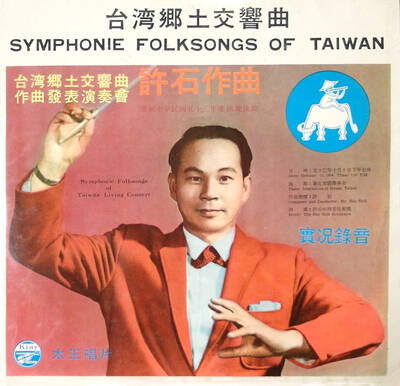Olivia Rodrigo does not want to hear about Uranus. Or your planned trip to Mars, for that matter. The pop star recently told Netflix that she has an “oddly specific question” that she asks guys on first dates.
“I always ask them if they would want to go to space … If they say yes, I don’t date them,” Rodrigo explained. “I just think if you want to go to space, you’re a little too full of yourself.”
Amen to that. Obviously, if you’re an astronomer, a passion for space travel makes sense. But interplanetary adventures seem to have turned into the ultimate status symbol for obscenely rich individuals jaded by their ability to buy anything on Earth. Certain rocket ship enthusiasts also seem less interested in advancing science and more interested in having a wider territory to colonize and monetize.

Photo: AFP
Of course, Jeff Bezos and Elon Musk wouldn’t ever admit their space obsession is all about their gravity-defying egos. Instead, they pretend they want to conquer the universe for the good of humanity. Bezos has said he’d love to see a trillion humans living in space.
“If we had a trillion humans, we would have at any given time a thousand Mozarts and a thousand Einsteins … Our solar system would be full of life and intelligence and energy.”
There are 8 billion people on Earth; our solar system is already full of life and intelligence and energy. Alas, so much of that intelligence will never have a chance to reach its potential. Who knows how many would-be Einsteins and Mozarts are being born in refugee camps in Gaza or being forced to work in cobalt mines in the Democratic Republic of the Congo?
Big Rocketship Energy isn’t the only red flag you should look out for when assessing future love interests. It’s important to align on the big issues (Should women have rights? Is ethnic cleansing bad?) but there are also some smaller things worth probing. So, in the interest of public service (and as an antidote to nonstop US politics), here are six oddly specific questions I recommend everyone ask when vetting potential suitors.
1. Do you wear outdoor shoes inside the house?
Make sure you’re wearing comfortable footwear when you ask this because if they answer “yes” then it’s time to get up and run. Perhaps you can cut them slack if you both live in the countryside but if, like me, you live somewhere as filthy as Philadelphia then your shoes are almost certainly tracking fecal matter and bin juice into your home.
2. Do you laugh during unfunny jokes in Shakespeare plays in order to signal how cultured you are?
Admittedly this is a difficult to question to ask — it’s something you need to observe. So head to the theater and take note. Now, to be clear, I’m not saying Shakespeare can’t be funny. I’m just saying a lot of his jokes aren’t laugh-out-loud hilarious because it’s not the 1590s any more. Still, you’ll always find people laughing uproariously at an Elizabethan dick joke just to signal to everyone else that they know what a codpiece is. It’s a very Bard sign.
3. Do you believe the pun is the lowest form of wit?
Anyone who says “yes” is not to be trusted.
4. Do you try very hard not to split infinitives?
While I may just have had a go at being the joke police, I think we should defund the grammar police. Particularly those insufferable pedants who seem to think that English (alive and well) should be more like Latin (somewhat dead). Split your infinitives! Put your prepositions wherever you like!
5. Do you hang your toilet paper under or over?
Sounds trivial, but this is something that has the potential to irritate you several times a day if you have incompatible positions on this issue. (Over is superior, obviously.)
6. How do you plan to ensure that my dog likes you?
Forget space travel: there is no bigger red flag than your dog not liking your date or your date appearing to be indifferent to your dog. Despite an unfortunate incident involving my dog Rascal accidentally biting her head with his tiny chihuahua teeth, my now wife made a lot of effort with my canine companion. She didn’t even complain when I brought him along on our first weekend away. That’s when I knew it was fur-ever.

The depressing numbers continue to pile up, like casualty lists after a lost battle. This week, after the government announced the 19th straight month of population decline, the Ministry of the Interior said that Taiwan is expected to lose 6.67 million workers in two waves of retirement over the next 15 years. According to the Ministry of Labor (MOL), Taiwan has a workforce of 11.6 million (as of July). The over-15 population was 20.244 million last year. EARLY RETIREMENT Early retirement is going to make these waves a tsunami. According to the Directorate General of Budget Accounting and Statistics (DGBAS), the

Last week the Chinese Nationalist Party (KMT) announced that the legislature would again amend the Act Governing the Allocation of Government Revenues and Expenditures (財政收支劃分法) to separate fiscal allocations for the three outlying counties of Penghu, Kinmen and Matsu from the 19 municipalities on Taiwan proper. The revisions to the act to redistribute the national tax revenues were passed in December last year. Prior to the new law, the central government received 75 percent of tax revenues, while the local governments took 25 percent. The revisions gave the central government 60 percent, and boosted the local government share to 40 percent,

Many will be surprised to discover that the electoral voting numbers in recent elections do not entirely line up with what the actual voting results show. Swing voters decide elections, but in recent elections, the results offer a different and surprisingly consistent message. And there is one overarching theme: a very democratic preference for balance. SOME CAVEATS Putting a number on the number of swing voters is surprisingly slippery. Because swing voters favor different parties depending on the type of election, it is hard to separate die-hard voters leaning towards one party or the other. Complicating matters is that some voters are

Sept 22 to Sept 28 Hsu Hsih (許石) never forgot the international student gathering he attended in Japan, where participants were asked to sing a folk song from their homeland. When it came to the Taiwanese students, they looked at each other, unable to recall a single tune. Taiwan doesn’t have folk songs, they said. Their classmates were incredulous: “How can that be? How can a place have no folk songs?” The experience deeply embarrassed Hsu, who was studying music. After returning to Taiwan in 1946, he set out to collect the island’s forgotten tunes, from Hoklo (Taiwanese) epics to operatic